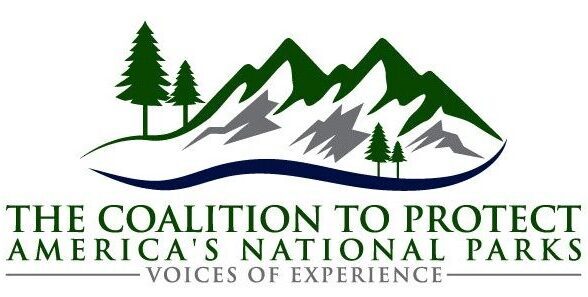
October 7, 2025
Public Lands Leaders Sound Alarm on National Parks and Public Lands As Government Shutdown Compounds Effect of Existing Cuts
With Limited Staff and Shrinking Budgets, Public Lands are Stretched Thin; Leaders Warn Early Shutdown Impacts Foreshadow Larger Problems
Full Recording and Transcript can be Found Here.
Washington, D.C. — Today, former public lands leaders, local business owners, and community advocates held a press call to discuss the ongoing government shutdown and its impacts on visitors, local economies, and public lands. Speakers highlighted real-world examples from national parks and forests already experiencing closures, limited services, and overextended staff, emphasizing that keeping parks open without adequate staffing and resources is unsafe and unsustainable.
The call comes after a September 26 letter to Secretary Burgum from 40 former National Park Superintendents, organized by the Coalition to Protect America’s National Parks and the Association of National Park Rangers, urging him to close national parks during a government shutdown due to the potential for vandalism and unsafe conditions. The danger today is even greater thanks to the current administration’s drastic staffing cuts and an ongoing hiring freeze across the Interior and Agriculture departments — leaving parks and public lands more short-staffed and vulnerable than ever before.
“This shutdown is a drain on our parks and public lands, the visitors, and the gateway communities. The administration is threatening imminent mass layoffs during the shutdown, as well as potential loss of back pay while these employees are forced to be on furlough,” said Sue Fritzke, member of Coalition to Protect America’s National Parks and Retired Park Superintendent of Capitol Reef National Park. “These hardworking employees, who are already unsure when they will see their next paycheck, now fear losing their jobs entirely. At the same time, parks are required to uphold a facade of normal operations to the public.”
“While some of the details are different, for the most part this shutdown is similar to the last one in that the primary goal seems to be to keep up the façade to make it seem that the parks don’t require full staffing or that all those other functions required by law need to be done,” said Bob Krumenaker, member of Association of National Park Rangers and Retired Park Superintendent of Big Bend National Park. “What makes this shutdown fundamentally different from the last one, though, is that I never worried about losing my job over the decisions that I made.”
Drawing on lessons from the last shutdown in 2018-2019, speakers noted that leaving parks open with limited or no staff has historically led to vandalism, overflowing trash, habitat destruction, and unsafe conditions for visitors.
“I really believe that our public land system is one of the greatest experiments of democracy. It’s a uniquely American ideal,” said Scott FitzWilliams, retired forest supervisor of White River National Forest. “On National Forests, much of the work we worked on, especially this time of year, was doing analysis for external partners, ski areas, and gas companies, outfitters and guides, issuing permits, doing the analysis — that’s all come to a halt. They do their best to keep the public places open and safe and clean, but the long-term degradation is problematic. I think people really need to step back, and I hope politicians step back.”
“To say that we benefit off of our proximity to Yellowstone Park doesn’t even come close to capturing the importance that Yellowstone has upon our business,” said Dale Sexton, owner of Dan Bailey’s Outdoor Company in Livingston, Montana. “In a musing attributable to Einstein, he conjectures that the most valuable things are those that can’t be measured. To that end, the value of our national parks and public lands extend well beyond economics, and their overall value cannot be measured.”
Already, the impacts of the shutdown are being felt on the ground. Critical behind-the-scenes work, from wildlife and cultural resource monitoring to deferred maintenance, has halted, while trail projects and wildfire fuel reduction efforts are delayed. In national forests, permitting for ski area expansions may be delayed jeopardizing multimillion-dollar projects and local jobs. During peak seasons like hunting and fall tourism, the absence of staff means no enforcement of regulations, unattended trails and facilities, and lost revenue that parks rely on for operations in the coming year.
Speakers emphasized that keeping parks and public lands open without adequate staffing and resources is unsustainable and urged Congress and the Trump administration to fully fund and fully staff public lands agencies.
For Immediate Release:
October 7, 2025
Contact: mo****@*******ms.com
###
